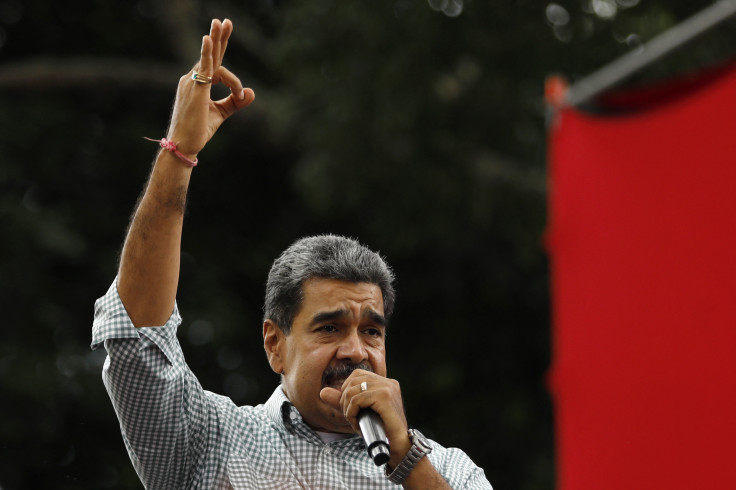
The U.S. State Department has strongly rejected allegations from Venezuelan authorities that the CIA orchestrated a plot to assassinate Venezuelan President Nicolás Maduro. Venezuelan officials recently arrested six foreigners, including a U.S. Navy SEAL, accusing them of involvement in a destabilization plan.
In a statement obtained by CNN, the State Department labeled the accusations "categorically false" and emphasized that the U.S. remains committed to supporting a peaceful, democratic solution to the ongoing political crisis in Venezuela. These denials follow a press conference led by Venezuela's interior minister, Diosdado Cabello, who claimed that the alleged plot was spearheaded by the CIA with the goal of assassinating Maduro and other top officials.
Cabello named Wilbert Castañeda, the detained U.S. Navy SEAL, as the operation's ringleader. Two other U.S. citizens—David Estrella and Aaron Barrett Logan—were also identified as suspects. The Venezuelan government claims that the men were part of a broader effort involving the seizure of 400 U.S.-manufactured rifles to carry out the plot. In addition to the Americans, Cabello reported the arrest of two Spanish nationals and one Czech citizen.
Reports indicate that Castañeda was apprehended in Caracas in August. U.S. authorities confirmed that Castañeda is a Navy SEAL who had traveled to Venezuela, though details of his mission remain murky. Last week, Venezuela's attorney general, Tarek William Saab, said the sailor, identified as a Mexican-American, was under investigation for entering the country without proper documentation.
Spain and the Czech Republic confirmed the arrests of their citizens. According to Reuters, a source from Spain's foreign ministry said that the two Spanish citizens had no links to the Spanish secret service and Spain was not involved in any plan to politically destabilize Venezuela. The Czech embassy in Bogotá is assisting the family of the detained Czech citizen since the country does not have diplomatic representation in Venezuela.
These arrests come at a time of heightened political tension in Venezuela following the country's disputed presidential election earlier this year. President Maduro's claim to a third term has been met with widespread skepticism both domestically and internationally. Opposition leader Edmundo Gonzalez, backed by a coalition of anti-Maduro factions, maintains that the election was rigged in Maduro's favor. Gonzalez, widely recognized as the winner of the election, took political asylum in Spain after Maduro's government issued a warrant for his arrest accusing him of conspiracy, among other things. International observers, including the U.S., have raised concerns about the legitimacy of the vote, citing reports of electoral fraud and vote manipulation.
The U.S. government has responded to the situation by imposing sanctions on key Venezuelan officials linked to the Maduro administration. Additionally, U.S. authorities recently seized a Venezuelan plane allegedly used by Maduro for international travel. Another aircraft connected to the embattled leader remains under surveillance in the Dominican Republic, according to CNN reports.
Meanwhile, Maduro's government has intensified its crackdown on political dissent, arresting over 2,400 protesters in what Human Rights Watch has described as the most severe repression in years. As the crisis deepens, many Venezuelans continue to flee the country, seeking refuge from the ongoing political and economic turmoil.
© 2025 Latin Times. All rights reserved. Do not reproduce without permission.







